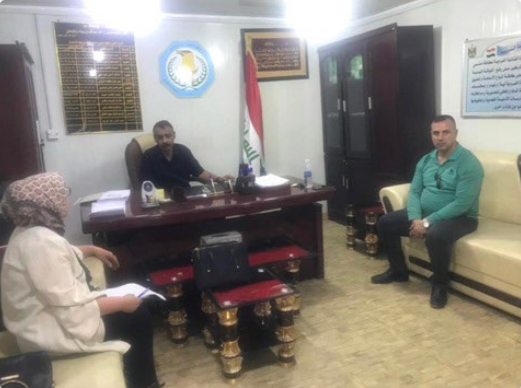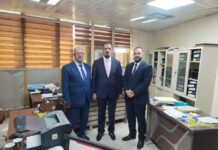قامت جمعية التقوى لحقوق المراة والطفل ضمن مشروع شبكة العدالة للسجناء وبدعم من منظمة مساعدات الشعب النرويجي بزیارة الى مركز شرطة الاحداث في محافظة البصرة بتاریخ 2024/4/18 وتم لقاء مدیرالمركز و المعاون والموظفین و الاحداث وتم اخذ المعلومات عن المركز و الاحداث حیث كان عدد الاحداث المتواجدین من الذكور ( 58) حدث من الموقوفین و المحكومین محتجزین بتھم مختلفة م ن المخدرات ،القتل، السرقة، رعایة أسلحة و إرھاب. وكانت اوضاعھم غیر جیدة بسبب ان مكان الاحتجاز صغیر جدا و العدد المتواجد اكبر من الطاقة الاستیعابیة للمركز حیث ان تصمیمھ یسع كحد اقصى ل(30) نزیلا و المتواجدین اكثر من ھذا العدد حیث لیس لدیھم باحث ین اجتماعین ولا یوجد لدیھم برامج ت أھیل ولا برامج یخضع لھا الحدث عند خروجھ من الاحتجاز لكي لا یعود الى الجریمة مرة اخرى . اما من ناحیة النظافة فھي غیر جیدة وخاصة الحمامات حیث لا توجد مساحات في المركز لممارسة النشاطات الیومیة, كذلك نقص في الملبس وعدم توفر الاماكن اللازمة للاكل, كذلك عدم وجود باحثين اجتماعيين, ولا توجد ورش تدریبة للاحداث لتعلیمھم و تدریبھم على مھن یمكن الاستفادة منھا عند الخروج من الاحتجاز
The Association for Virtue for Women and Children’s Rights, within the framework of the Justice Network for Prisoners project and with the support of the Norwegian People’s Aid organization, visited the Events Police Center in Basra Governorate on 18/4/2024. They met with the center’s manager, deputy manager, employees, and the detainees. Information was gathered about the center and the detainees, where the number of male detainees present was 58, detained or convicted on various charges including drugs, murder, theft, possession of weapons, and intimidation. Their conditions were deemed poor due to the very small confinement space, with the number of detainees exceeding the center’s capacity, designed to accommodate a maximum of 30 inmates. They lack sufficient meeting rooms and have no rehabilitation programs or programs for detainees upon release to prevent recidivism. In terms of cleanliness, it was deemed inadequate, especially in the bathrooms where there are no spaces for daily activities. Additionally, there is a shortage of clothing, lack of necessary eating areas, no social workers, and no training workshops for detainees to educate and train them in skills that could be utilized upon release from detention.




